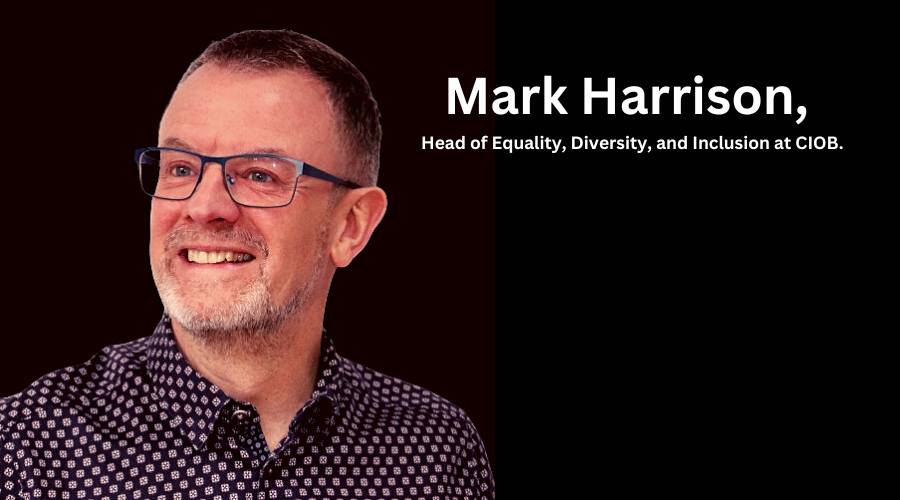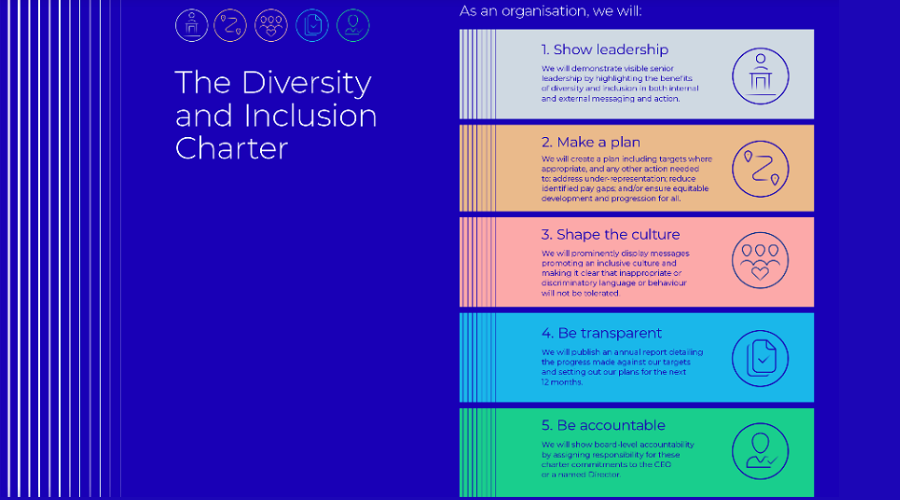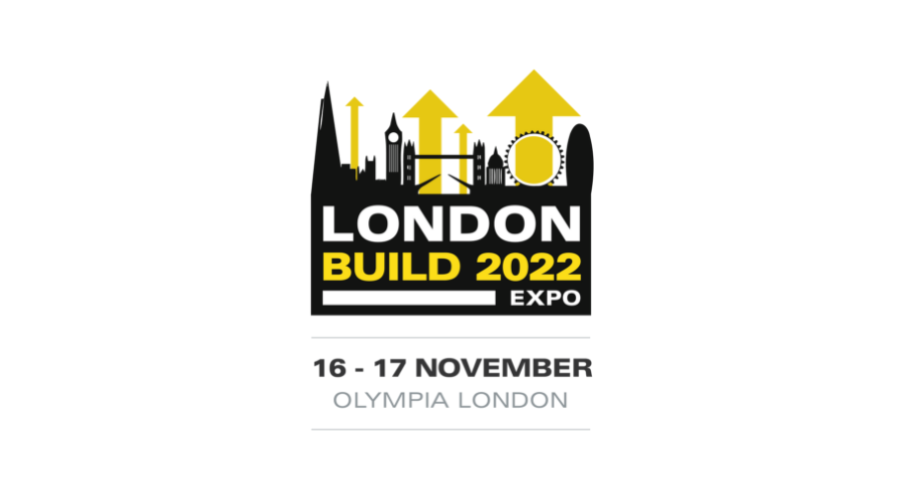Research has shown that companies that have a genuine commitment to being inclusive and diverse are better equipped to anticipate the different needs of service users.

by Richard Allan / September 23, 2022
Construction Wave is one of the official media partners at November’s London Build. In the run-up to this, we will be interviewing guest speakers that will be at this year’s exhibition.
Today, we sit down with Mark Harrison, Head of Equality, Diversity, and Inclusion at CIOB.
Let’s get stuck in.
***
1) Can you explain what your role entails at CIOB?
My role is to embed and promote equality, diversity, and inclusion across all the functions of the CIOB. I have a particular focus on our membership and the wider built environment sector. This is in line with the first objective Royal Charter. We aim to improve the quality of life for all the users and creators of our built environment.
I work with colleagues right across the business. For example, with marketing colleagues to ensure that our websites are accessible as possible. And our membership team to better understand the needs of our members. Finally, I help members studying in our accredited courses.
2) Equality, Diversity, and Inclusion (EDI) is a growing initiative in the industry at the moment. Can you explain to our readers how they can evaluate if a company is actually executing this initiative?
Please forgive the plug, but check out the companies that have signed up for the CIOB Special Report and Charter. These companies are demonstrating commitment to a more inclusive, welcoming, and representative sector.
In the report, we have five key commitments. One is for signatory companies to annually publish and update the progress they have made. This helps prove transparency and accountability.
3) Apart from the societal & cultural gains, how does an effective EDI strategy help to drive the business forward?
Research has shown that companies that have a genuine commitment to being inclusive and diverse are better equipped to anticipate the different needs of service users. Better at decision-making, avoiding ‘groupthink’. Staff have higher rates of satisfaction because they’re valued for their contributions. Not judged on their personal characteristics. This means higher rates of productivity and lower staff turnover. Who wouldn’t want to be an employer of choice for all individuals and communities?
These companies tend to be more creative and have an enhanced reputation in competitive global markets. On top of this, they are better prepared to meet the requirements of legislation (e.g. The Equality Act 2010) and avoid costly legal action. So, it is no surprise that the research demonstrates that such companies are more profitable.
Companies like Adobe, Pfizer, and Diageo have had these initiatives for years. And wouldn’t have been investing in them if there wasn’t a solid business case!

4) Could you tell us about the meaning of EDI and how CIOB implements it across the industry?
The words ‘equality, diversity & inclusion’ can present a barrier for some people in the industry. But, what we are really trying to do is ensure that the built environment is accessible, welcoming, and meritocratic.
In accordance with our objectives, the CIOB is taking a role by providing tools with which stakeholders in the sector can contribute to this work. That’s why we have launched our Special Report & Charter on D&I and why we have adopted specific awards in this area to recognise game changers on this agenda.
We have also committed to working with the other professional membership organisations in the built environment sector (RICS, RIBA, ICE, RTPI and the Landscape Institute) as we recognise the shared challenges that we face and the opportunities that are there if we collaborate on this work, rather than duplicating effort. In July 2022 we published a detailed action plan with a set of targets for the next three years covering the areas of data analysis, fixing the ‘leaking pipeline’ into employment, and raising standards across the sector.
5) Many believe EDI is for the big firms. But, what can smaller contractors (with limited resources) do to add value in this area?
Yes, it can be challenging for smaller firms to see how they can make a difference – but they can. SMEs make up a significant proportion of firms working in the built environment. So, it’s important that they consider how the agenda can be of benefit to themselves, the industry, and beyond.
I respectfully suggest that all sizes of companies can follow the five commitments set out in the CIOB’s Diversity & Inclusion Charter. The commitments are purposefully non-prescriptive as we recognise that not all firms have the same resources to dedicate to this work. The Charter seems to be striking a chord with many companies in the sector – we now have over 90 firms signed up and committed to promoting an accessible construction sector.
Signing up for the Charter in itself helps to demonstrate that companies are positive, and progressive and want to help make the industry more representative of the wider population.
6) You’re speaking at London Build. What kind of conversations can attendees expect at your panelist discussion?
I’m sure the panel will throw up interesting and unexpected conversations. That’s the nature of this work and it’s all fascinating. I would be surprised if we didn’t talk about the huge potential for addressing the people and skills gap in the industry. With only 2% of on-site operatives currently being women, for example, there are some obvious answers to this problem.
We have such a broad range of existing and developing roles in the sector that offer excellent careers. We need to make sure we are attracting people with different, diverse life experiences, and skills into these roles. That will be for the benefit of everyone working in the sector and those making use of the buildings we produce.

